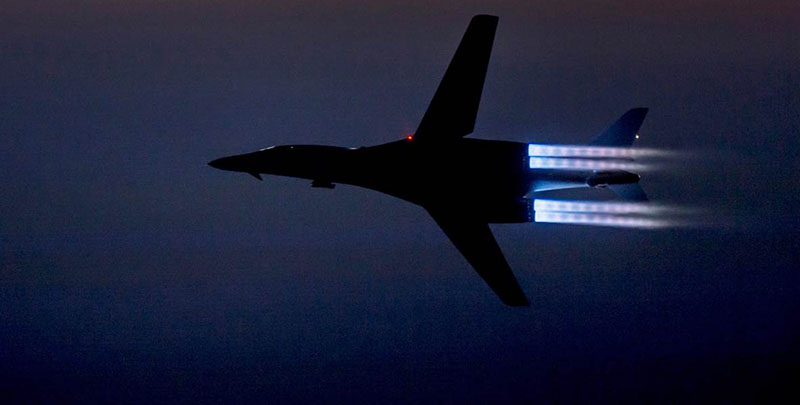
The Pentagon said on Thursday that US airstrikes in Iraq have killed three senior Islamic State (ISIS) leaders in recent weeks.
According to Gen. Martin Dempsey, chairman of the Joint Chiefs of Staff, the strikes that killed the military leaders were supposed to hinder the terrorist organization's ability to conduct attacks, supply fighters and finance operations. He made those comments in a Wall Street Journal interview.
"It is disruptive to their planning and command and control," Dempsey said. "These are high-value targets, senior leadership."
U.S. officials said that one of the two ISIS leaders killed in early December was Haji Mutazz, who was described as a "deputy wali" or "governor." According to Luis Martinez of ABC News, Mutazz had been the right-hand man to the leader of ISIS, Abu Bakr al-Baghdadi.
The other ISIS leader that was killed included Abd al Basit. ABC News reported that he was the head of ISIS military operations in Iraq.
"I can confirm that since mid-November, targeted coalition airstrikes successfully killed multiple senior and mid-level leaders within the Islamic State of Iraq and the Levant (ISIL)," said Pentagon Press Secretary Rear Admiral John Kirby, who used another name for ISIS.
Kirby added that the airstrikes against ISIS leaders would help "Iraqi Security Forces (ISF), including Kurdish and other local forces in Iraq."
Julian E. Barnes of the Wall Street Journal reported that the airstrikes were part of an expanding coalition effort between U.S. and Iraqi forces. This coalition is expected to mount an offensive next year in an attempt to retake cities under ISIS control.
According to ABC News, officials indicated that the military offensive would focus on retaking Mosul. U.S. officials indicated that it could take place late in 2015, but it seemed the Iraqi military wanted to begin the operation sooner.
A defense official told the Wall Street Journal that U.S. airstrikes against ISIS, also known by its Arabic label acronym Daesh, were having an impact in Iraq. Seven important ISIS figures have been killed in November and December by those actions.
"We've bombed their oil production, we struck the Humvees and MRAPs they stole from us and now we are targeting their leadership," the defense official said.
At a Pentagon briefing, Lt. Gen. James Terry, commander of the Combined Joint Task Force, told reporters that the U.S. and its coalition partners have conducted 1,361 airstrikes in Iraq and Syria.
"Combined efforts like these are having a significant effect on Daesh's ability to command and control, to resupply, and to conduct maneuvering," Terry said.
Terry added that ISIS "has been halted and transitioned to the defense and is attempting to hold what they currently have."
Ahmed Ali, an analyst at Washington-based think tank Institute for the Study of War, elaborated on the significance of the strikes.
"These are big hits and eliminating these figures always temporarily disrupts the organization," Ali said.
However, Ali told the Wall Street Journal that the deaths of these senior figures likely "will not end the organization."
"Hitting Baghdadi will represent a make-or-break moment for ISIS," Ali said. "But for now, ISIS leadership bench and command structure are deep."
















